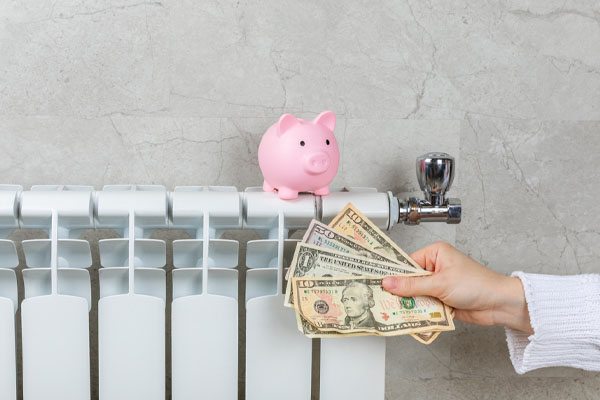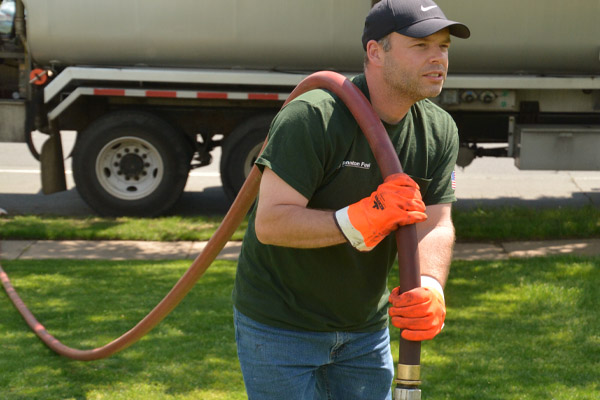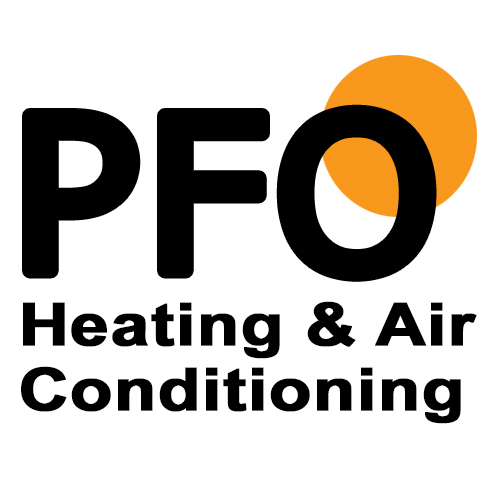
Life in New Jersey brings with it two undeniable realities: frigid temperatures and the accompanying high heating expenses. As winter approaches, reliance on furnaces and boilers becomes essential for finding solace from the cold. While shutting off the heating system to cut costs may not be a viable option, there are alternative strategies for curbing heating oil expenses. This guide will discuss several suggestions for reducing your oil heating costs without compromising comfort or safety.
10 Ways to Save Money on Oil Heating Costs
Contents
- 1 10 Ways to Save Money on Oil Heating Costs
- 1.1 1. Use a Smart Oil Gauge
- 1.2 2. Install a Programmable Thermostat
- 1.3 3. Replace Air Filters Regularly
- 1.4 4. Get a Professional HVAC Tune-up
- 1.5 5. Seal Perimeter Openings
- 1.6 6. Improve Insulation
- 1.7 7. Exclude Vacant Spaces
- 1.8 8. Buy Heating Oil During the Summer
- 1.9 9. Avoid Special Deliveries
- 1.10 10. Limit Bathroom Fan Use
- 1.11 Conclusion
- 2 Call PFO Heating & Air Conditioning For Reliable Heating Oil Deliveries
1. Use a Smart Oil Gauge

Being well-informed is crucial. This is true for managing your heating needs. Using a smart oil gauge enables precise measurement of your heating system’s consumption on an hourly, daily, weekly, monthly, and yearly basis. Automated monitoring streamlines oil tank management, providing real-time insights into your tank’s status, whether it is nearing depletion or full capacity. Armed with this information, you can implement effective fuel-saving strategies.
Related Article: How to Read Your Home Heating Oil Tank Gauge
2. Install a Programmable Thermostat

Every household follows a unique daily routine. Some experience bustling activity early in the morning as the family prepares for work and school. Others find things hectic during lunch or dinner when everyone gathers for a meal. These varying schedules result in differing heating requirements. To address this, a programmable thermostat provides homeowners with the capability to activate or deactivate their heating system at designated times throughout the day. Homeowners can adjust temperature settings as needed. This device significantly enhances the overall efficiency of the heating system.
Related Article: Wi-Fi Thermostats for Oil Heat
3. Replace Air Filters Regularly
Maintaining your heating system requires diligence and regular care to prevent most issues. Set a routine where you clean the area around the boiler or furnace and oil tank. Use this as an opportunity to inspect for any leaks, signs of rust, or oter irregularities. Replace your HVAC air filters as recommended by the manufacturer, typically ranging from once a month to every few months. If you see a thick layer of dirt accumulating on the surface, change the filter more frequently for optimal performance.
4. Get a Professional HVAC Tune-up
Heating systems are intricate pieces of equipment with multiple components working together to maintain a warm home. Any of these components can malfunction. Professionals have the expertise to pinpoint problems before they disrupt the heating system’s operation. They perform essential tasks such as inspecting electrical connections, cleaning internal parts, and replacing worn-out parts. Schedule an annual comprehensive tune-up, preferably during the fall when temperatures are milder. This will allow you to comfortably switch off the boiler or furnace for an extended period. This proactive approach helps keep your heating system in top shape.
Related Article: Oil Tank Condensation: What You Need To Know
5. Seal Perimeter Openings
Doors and windows serve not only as entrances but also as pathways for chilly outdoor air to infiltrate through minor openings. Even when tightly closed, these gaps can persist. To detect them, run your hand along the edges to find drafts. Drafts can keep the indoor atmosphere cool, pushing your heating system to operate more strenuously in order to reach the desired thermostat settings. By effectively sealing these openings with caulking and weatherstripping, you can substantially reduce your oil heating costs. This not only conserves energy but also reduces heating costs.
6. Improve Insulation
If your home insulation is not effectively maintaining warmth, your house might reap the rewards of enhanced insulation to combat the cold. When insulation is compromised by moisture or pests, it may be necessary to remove and replace it. The new insulation will obstruct heat transfer, preserving a warm interior for an extended duration. As a result, your boiler or furnace won’t need to work vigorously, leading to a reduction in oil heating costs. Over time, the energy savings you accrue could offset the cost of the insulation upgrade.
Related Article: How Does An Oil Heating System Work?
7. Exclude Vacant Spaces
In a large residence, certain rooms can go unused for extended periods. These might include guest rooms, storage areas, and similar spaces. To reduce the system load, you can close the vents leading to these unoccupied areas. They will not receive heated air until you decide to reopen the vents. This adjustment should result in decreased oil consumption by the furnace or boiler.
8. Buy Heating Oil During the Summer

Commodity prices vary depending on supply and demand dynamics. Prices decrease when there is an abundance of supply and lower demand for the products. For instance, heating oil is in high demand during the winter months, while it is less of a concern in the summer when warm weather prevails. During summer, suppliers often lower their prices to entice buyers. This is a good opportunity to contact them for a cost-effective fuel oil delivery and refill your tank while taking advantage of the discounted rates.
Related Article: Home Heating Oil: Top Tips For Summer
9. Avoid Special Deliveries
A full heating oil tank may not always last through the entire winter season. Some can run out during the cold weather, requiring a mid-season refill. Make sure you schedule the delivery during regular business hours whenever possible. Businesses tend to charge extra for emergency situations, including nighttime, weekend, and holiday deliveries. Emergency deliveries incur higher labor costs. It is best to avoid these extra charges by proactively refilling your tank before it runs empty. Contact your heating oil supplier when your tank reaches approximately 30% capacity. This can help you avoid unexpected emergencies and additional costs.
10. Limit Bathroom Fan Use
Bathroom fans help enhance air circulation, manage moisture, and eliminate odors. However, bathroom fans can also lead to heat loss by expelling air at a rapid rate. To conserve heat, use bathroom fans only when necessary. Avoid letting them run for longer than required. Some fans are equipped with built-in timers that automatically switch them off after a set period. Experiment with the settings, aiming to reduce the fan’s operation time while still maintaining satisfactory results. This will help reduce your consumption of both heating oil and electricity.
Related Article: What Do Heating Oil Additives Do?
Conclusion
Lowering your heating expenses can be achieved through straightforward adjustments. It can be done by modifying routines, making home enhancements, and incorporating practical devices into your heating system. These changes do not require a substantial investment of time, money, or effort. You also do not need to handle all these adjustments yourself. Hire a reliable HVAC contractor for cost-effective annual maintenance. They can offer valuable assistance in resolving persistent issues and provide vital heating guidance.
Related Article: New Efficient Oil Heating Systems Increase Comfort & Decrease Fuel Use
Call PFO Heating & Air Conditioning For Reliable Heating Oil Deliveries

When you’re searching for a reputable heating oil delivery company, you can contact PFO Heating & Air Conditioning.
We offer the best home heating oil delivery and the most reasonable heating oil prices in the area. We have different delivery plans and financing options so you can customize your oil deliveries to meet your needs. Also, our team of expert technicians provides HVAC services to help improve the performance and efficiency of your HVAC equipment. Our priority is your satisfaction, so we back all of our work with a guarantee. Give us a call today!
Call PFO Heating & Air Conditioning today and learn more about the services we offer. We will be happy to answer all your questions and concerns. Call now!
Click here to contact us now or call us at (800) 253-9001 to find out more! Click the link to view our service area.



